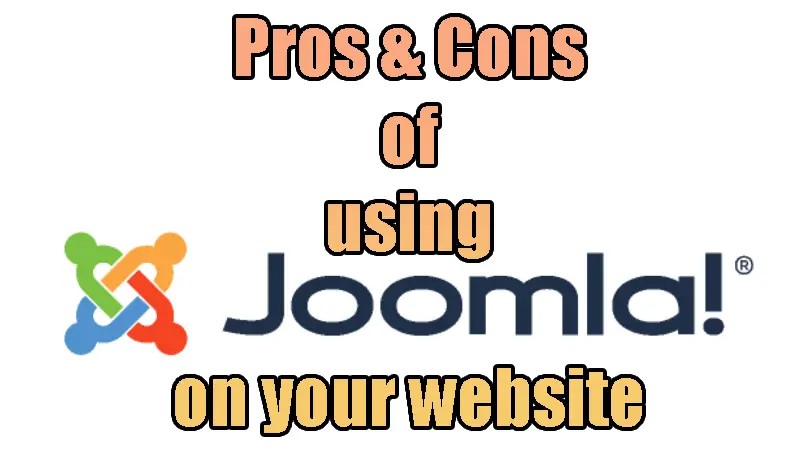Pros and Cons of Using Joomla for Your Website
3 min read
When it comes to building a website, choosing the right Content Management System (CMS) is crucial. Joomla stands out as a popular option, offering a range of features and functionalities that cater to diverse website needs. However, like any CMS, Joomla has its advantages and disadvantages. In this comprehensive guide, we’ll delve into the pros and cons of using Joomla for your website.
Pros of Using Joomla:
1. User-Friendly Interface:
Joomla boasts an intuitive and user-friendly interface, making it accessible even for users with limited technical expertise. Its dashboard is well-organized, allowing users to manage content, customize layouts, and navigate various settings with ease.
2. Flexibility and Extensibility:
One of Joomla’s greatest strengths is its flexibility. With thousands of extensions available in the Joomla Extensions Directory, users can easily enhance their websites with additional features such as e-commerce, social networking, SEO optimization, and more. This extensibility makes Joomla suitable for a wide range of website types, from personal blogs to complex corporate portals.
3. Powerful Content Management:
Joomla offers robust content management capabilities, allowing users to create, edit, and organize content effortlessly. Its hierarchical structure enables the creation of complex content architectures, making it ideal for websites with extensive content requirements.
4. Strong Community Support:
Joomla benefits from a large and active community of developers, designers, and users who contribute to its ongoing development and support. This vibrant community provides valuable resources, including documentation, forums, tutorials, and user groups, making it easier for users to troubleshoot issues and stay updated on the latest developments.
5. Multilingual Support:
For websites catering to global audiences, Joomla’s built-in multilingual support is a significant advantage. Users can create content in multiple languages, facilitating localization and internationalization efforts without the need for third-party extensions.
6. SEO-Friendly Features:
Joomla offers several built-in features that support search engine optimization (SEO), including customizable URLs, metadata management, sitemaps, and more. These features help improve a website’s visibility in search engine results, driving organic traffic and enhancing its online presence.
Cons of Using Joomla:
1. Learning Curve:
While Joomla’s user interface is relatively intuitive, mastering its advanced features may require some learning curve, especially for beginners. Users may need to invest time in familiarizing themselves with Joomla’s terminology, structure, and best practices to fully leverage its capabilities.
2. Complexity:
Joomla’s extensive feature set and flexibility can sometimes lead to complexity, particularly for users with limited technical skills. Managing complex configurations, extensions, and updates may require additional expertise or support, which could be challenging for smaller businesses or non-technical users.
3. Performance Overhead:
As with any CMS, Joomla’s performance can be impacted by factors such as the number of extensions installed, server configuration, and website complexity. Poorly optimized extensions or inefficient coding practices can result in slower page load times and reduced overall performance.
4. Security Concerns:
While Joomla has a dedicated security team and regularly releases updates to address vulnerabilities, its open-source nature can make it susceptible to security risks. Failure to keep the core software and extensions up-to-date can leave websites vulnerable to hacks, malware, and other security threats.
5. Limited Design Flexibility:
While Joomla offers a range of templates and customization options, some users may find its design flexibility somewhat limited compared to other CMS platforms. Achieving highly customized designs may require additional coding or the use of third-party templates and extensions.
6. Dependency on Third-Party Extensions:
While Joomla’s extension ecosystem is extensive, relying heavily on third-party extensions can introduce dependencies and compatibility issues. Users must carefully vet and maintain their extensions to ensure they remain compatible with Joomla core updates and do not introduce security vulnerabilities or performance issues.

Choosing Joomla as your CMS offers numerous advantages, including user-friendliness, flexibility, and robust content management capabilities. However, it’s essential to consider the potential drawbacks, such as a learning curve, complexity, and security concerns, before committing to the platform. By weighing the pros and cons and understanding your website’s specific needs and constraints, you can make an informed decision about whether Joomla is the right choice for your next web project.



